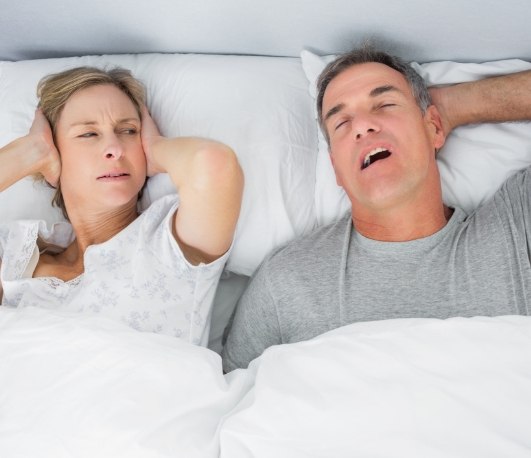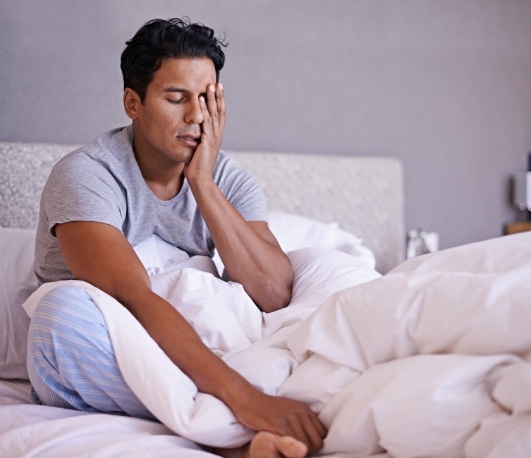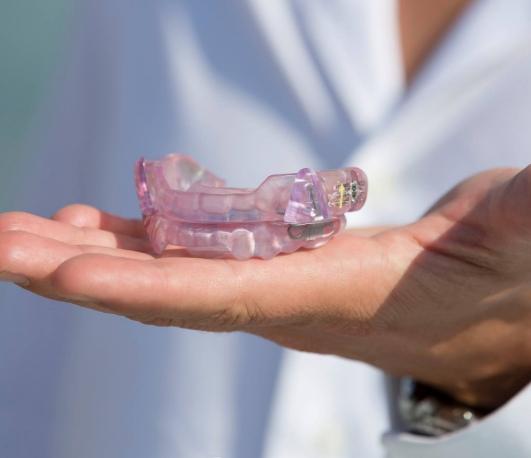Sleep Apnea Treatment Waco
It’s Time to Get the Sleep You Need
Snoring is a common problem in many households. Extremely loud snoring disrupts the sleep of our loved ones and inadvertently awakens us from an otherwise restful night’s sleep. However, when loud snoring is accompanied by breathing interruptions, it could be a sign of a more serious condition known as sleep apnea. In addition to snoring at night and fatigue during the day, sleep apnea patients suffer from headaches, memory loss, depression, impaired concentration, and decreased sex drive. Patients are at an increased risk of developing heart problems. If you are experiencing constant sleep disruption, troubled breathing, and loud snoring at night, you may have sleep apnea. Make an appointment with one of our dentists at Heart of Texas Smiles General & Cosmetic Dentistry for the immediate snoring and sleep apnea treatment in Waco you need.
Why Choose Heart of Texas Smiles General & Cosmetic Dentistry for Sleep Apnea Treatment?
- Custom Oral Appliances Made as Alternative to CPAP Therapy
- Dentists with Extensive Sleep Apnea Training
- Our Patients’ Needs Come First When Building Treatment Plans
What Causes Sleep Apnea & Snoring?

With sleep apnea, airflow is intermittently obstructed as you sleep. This occurs when the tongue and muscles in the back of the throat relax and obstruct the airway in your throat. When this airflow is obstructed from your lungs, a distress signal is sent to your brain. Your brain then wakes you up momentarily to contract your throat muscles and clear the airway obstruction. Once the airway is cleared and the distress signal fades, your brain allows you to fall back asleep. This cycle repeats throughout the night. Snoring is caused by the vibrations of moving air forced through the obstruction.
What Increases My Risk of Developing Sleep Apnea?

Millions of Americans have undiagnosed sleep apnea. Many factors increase the chance of developing sleep apnea. Men are more likely to have sleep apnea than women until menopause. However, risks increase for everyone with age, obesity, family history, and chronic nasal congestion. Sleep apnea symptoms also worsen when you lay on your back and during REM sleep.
Sleep Apnea Treatment Options

The most common sleep apnea treatment is Continuous Positive Airway Pressure Therapy (CPAP). CPAP machines are used while you sleep to increase air pressure in your throat and prevent the airway from collapsing. You breathe through a mask that covers the nose or the nose and mouth. However, CPAP is an invasive treatment with many side effects, including nightmares, sore throat, nasal congestion, sneezing, eye and skin irritation, and bloating.
Oral appliances (snore guards) are a less invasive treatment for sleep apnea. Oral appliances look similar to athletic mouthguards or nightguards used to treat bruxism. A few of the devices we provide, TAP and Silent Nite appliances, prevent the tongue and fatty tissues at the back of the throat from collapsing as you sleep. You can be fitted for a custom oral appliance, which can be worn every night to prevent snoring and sleep apnea symptoms from occurring.
I Need a Checkup & Cleaning I am Worried About Gum Disease I Need a Dentist for My Child I Have a Cavity or Broken Tooth I am Missing One or More Teeth I Want to Enhance My Smile I Want a Straighter Smile I am Scared of the Dentist I Have Jaw Pain I Have a Dental Emergency View Our Services

